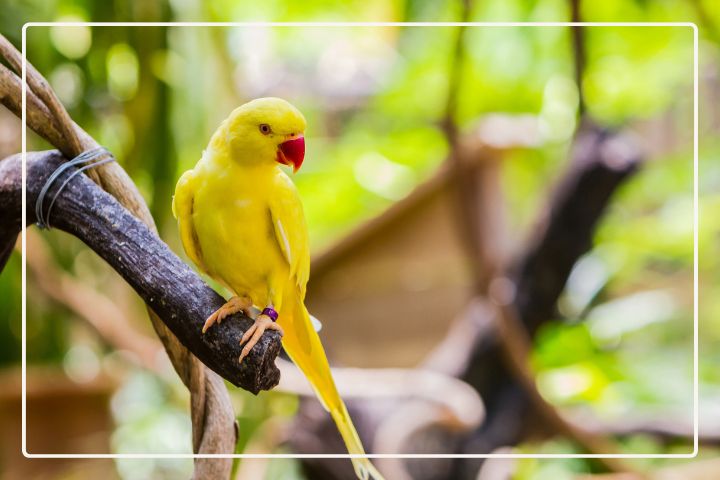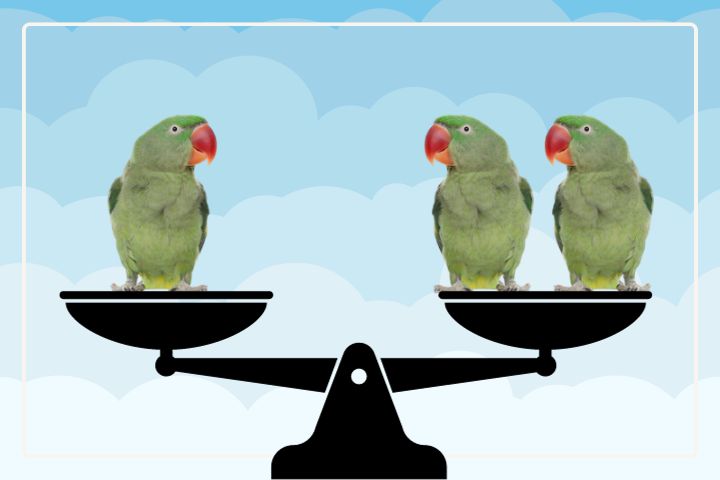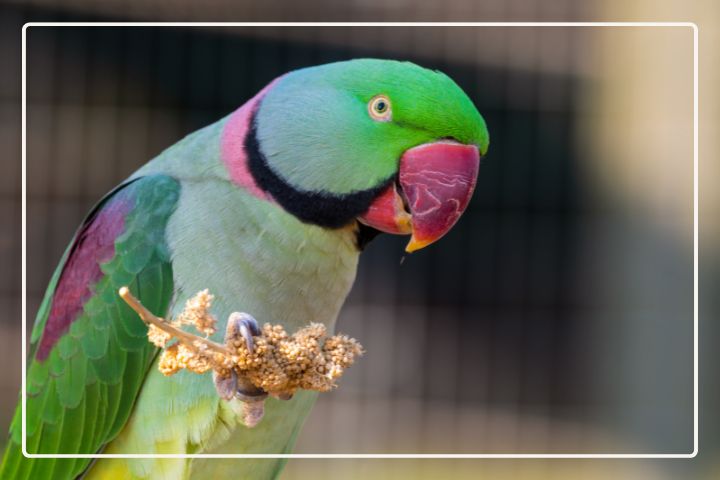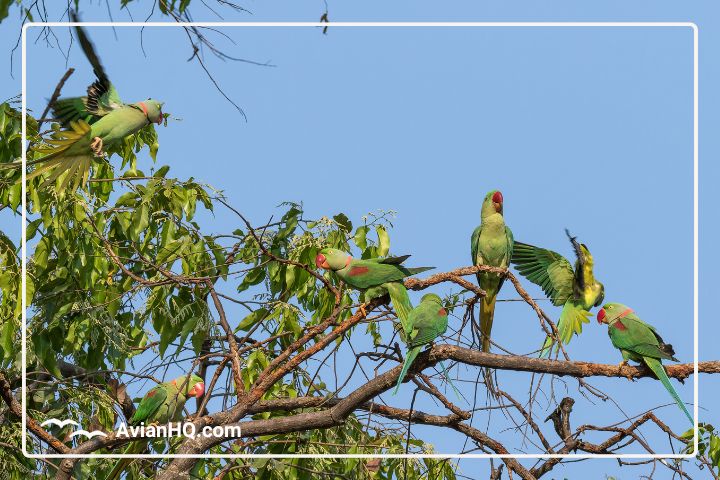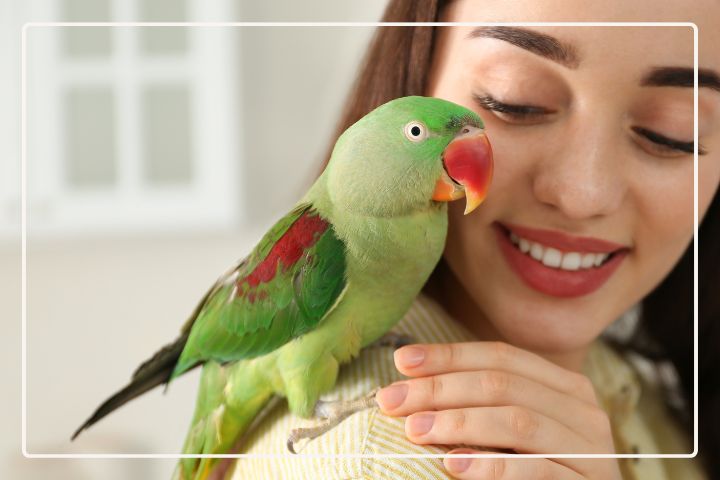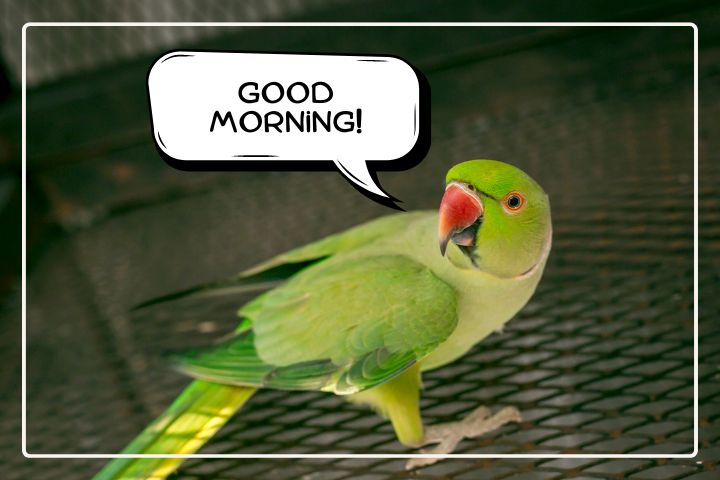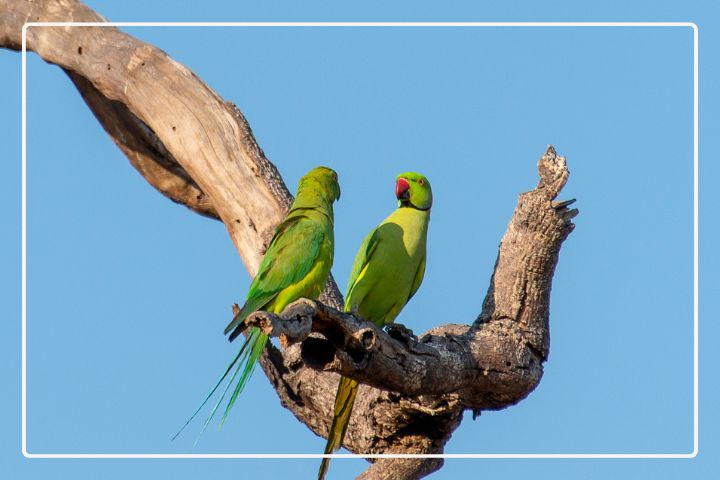Are Indian Ringneck Parakeets Good Pets?
Indian Ringneck Parakeets are a popular choice for bird enthusiasts looking for a pet that is intelligent, social, and can be an excellent talker. However, before deciding to bring one home, it’s essential to understand the responsibilities that come with owning an Indian Ringneck Parakeet.
Indian Ringneck Parakeets as Pets
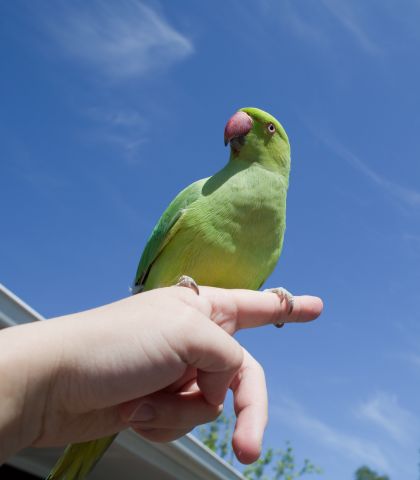
Indian Ringneck Parakeets, also known as Ring-necked Parakeets, can make great pets for the right owner and many bird enthusiasts. These marvelous birds are highly social birds and thrive on interaction with their owners. Ringnecks are known for their playful, curious nature and can be quite vocal, making them a great choice for those who enjoy an active, engaging pet. However, they also require a significant amount of care and attention to thrive, including a proper diet, exercise, and mental stimulation.
Are Indian Ringnecks Good for Beginners
Indian Ringneck Parrots are highly sociable birds that require a lot of attention and care. While they can make excellent pets, they might not be the best choice for beginners. These birds are intelligent and curious, which means they need plenty of mental stimulation to keep them happy and healthy. They also require a balanced diet, clean housing, and regular veterinary checkups.
One, Two or More
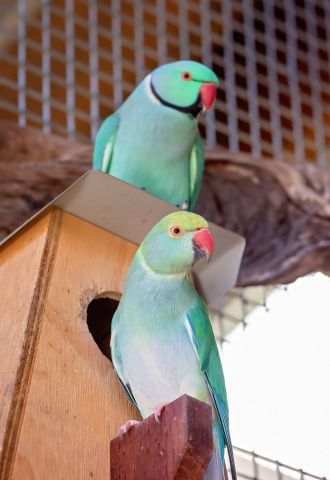
Like all parrots, Indian Ringneck Parakeets are highly social animals that thrive on companionship. While they can be kept alone, they are happiest when they have a companion. If you’re considering getting an Indian Ringneck Parakeet, it’s a good idea to get two birds so that they can keep each other company.
General Pet Ownership
Keeping Indian Ringnecks as pets requires a lot of time, effort, and commitment. These birds need daily attention and interaction, as well as a clean and safe environment. They also need plenty of toys and activities to keep them entertained. If you’re considering getting an Indian Ringneck Parakeet, it’s important to do your research and make sure you’re prepared to provide them with the care they need.
Understanding Indian Ringneck Parakeets
Ringnecks are intelligent and curious birds, but they can also be moody and temperamental. They require a lot of attention and socialization to thrive in captivity. They are not one-person birds, but they can bond strongly with their owners if they are treated well and given enough attention.
To know if an Indian Ringneck Parrot likes you, you should observe their body language. If they are relaxed and comfortable around you, they may start to preen themselves or even climb onto your hand or shoulder. They may also make soft chirping sounds or vocalize in other ways to show their affection.
Indian Ringnecks are also known for their chewing behavior, which can be destructive if they are not given enough toys and other objects to play with. They require a lot of mental stimulation to prevent boredom and related behavior problems.
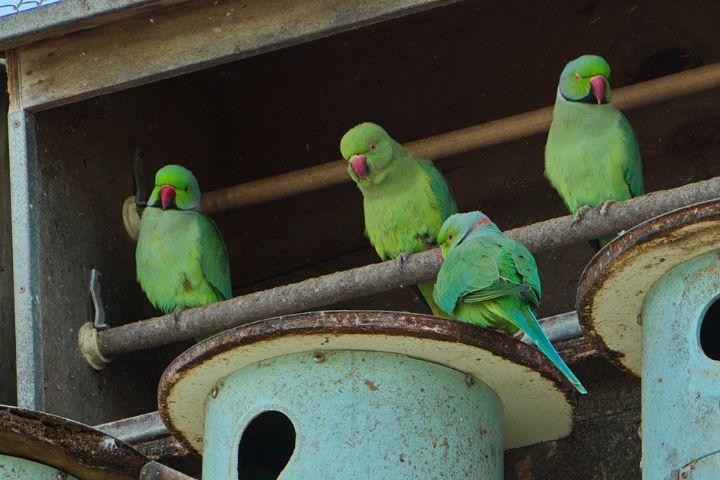
Read our article on the Overview, Characteristics and Care of Indian Ringneck Parakeets
Behavior and Personality Traits
Indian Ringneck Parakeets are known for their intelligence and ability to learn tricks and mimic human speech. They are also highly social birds and enjoy spending time with their owners. However, they are not typically considered “one person birds” and can bond with multiple people in a household.
To know if an Indian Ringneck likes you, pay attention to their body language. They may puff up their feathers, bob their head, or make soft chirping sounds when they are happy and content. However, they may also become aggressive or bite if they feel threatened or uncomfortable.
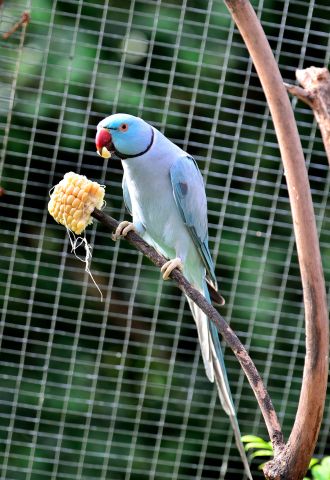
Ringnecks are active birds that require lots of toys and mental stimulation to prevent boredom and destructive behavior. They may chew on furniture or other objects if they do not have enough to keep them occupied. It is important to provide them with a large cage and plenty of opportunities for exercise and playtime outside of their cage.
Indian Ringnecks also go through a bluffing stage during adolescence, which can be difficult for some owners. They may become more aggressive and nippy during this time, but with proper training and socialization, they can learn to be well-behaved pets.
Care and Maintenance
Taking care of an Indian Ringneck Parakeet is a long-term commitment, and it requires a lot of attention and care. Here are some things to keep in mind when it comes to the care and maintenance of an Indian Ringneck Parakeet:
Cage and Perch
Indian Ringneck Parakeets are medium-sized birds that typically measure around 16 inches in length, including their long tail feathers. It is crucial to provide a large cage for an Indian Ringneck Parakeet. The cage should be spacious enough to accommodate the bird’s movements, and it should be easy to dismantle and clean. The minimum cage size should be 24″x24″x36″, though larger would be better.
Should you let your pet bird fly around your house or apartment, the perch should be placed away from any drafts and should be made of natural materials like wood.
Read our post “What Size Cage Does an Indian Ringneck Need?”
Diet and Feeding
Indian Ringneck Parakeets require a balanced diet to maintain their health and well-being. They should be fed a combination of seeds, pellets, fruits, and vegetables daily. Pellets provide a complete and balanced source of nutrition, while fresh fruits and vegetables offer variety and additional nutrients. It should also be mentioned Ringnecks are omnivores, so they also can eat meat, chicken, fish and shrimp.
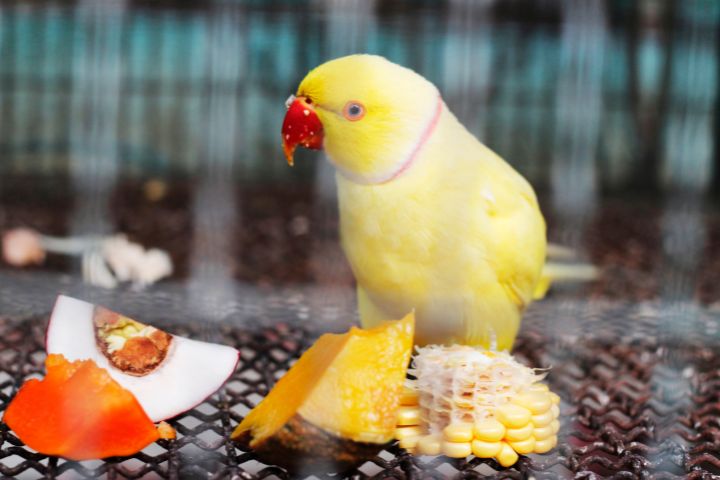
It is essential to avoid feeding them avocado, chocolate, caffeine, and alcohol, as these can be toxic to birds.
Attention and Care
Like all birds, Indian Ringneck Parakeets need attention and care. Make sure to spend time with your bird every day, and build a strong bond with it. They are highly social birds and appreciate plenty of interaction. It is important to keep in mind that they require a lot of attention and care, and they can get bored and destructive if left alone for long periods. Adult males tend to be more vocal and may require more socialization and interaction than females.
Pet Trade
Indian Ringneck Parakeets are popular in the pet trade, but it is important to be aware of the ethical concerns surrounding the trade. It is essential to purchase birds from reputable breeders and to avoid supporting the illegal trade in wild-caught birds.
Communication and Interaction
Indian Ringneck Parakeets are highly social birds and require daily interaction and attention to thrive. They are known for their playful, curious nature and can make great companions for those who are willing to put in the time and effort to care for them properly.
One of the most notable features of Indian Ringneck Parakeets is their ability to mimic human speech. While not all parakeets will learn to talk, many can learn a variety of words and phrases with proper training and socialization. Bird owners who are willing to invest time and effort into teaching their parakeet to talk can quickly develop a unique and rewarding bond with their pet.
Ringnecks are also highly intelligent and require mental stimulation to stay healthy and happy. Owners should provide their parakeet with a variety of toys, puzzles, and activities to keep them entertained and engaged.
When it comes to interaction, Indian Ringneck Parakeets are known for their affectionate and caring nature. With proper socialization, they can quickly become a beloved companion and family member. Owners should spend time each day interacting with their parakeet, whether through talking, playing, or simply spending time in the same room.
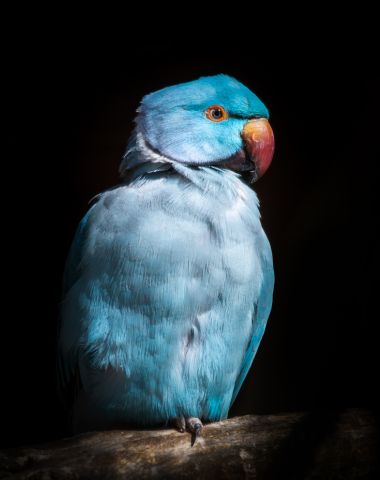
Health and Lifespan
Indian Ringneck Parakeets are generally healthy birds, but just like any other pet, they are prone to certain health issues. It is important to provide them with a healthy diet and regular veterinary checkups to ensure their well-being.
These birds have a relatively long lifespan, with an average life expectancy of 25 to 30 years, and some can even live up to 50 years. However, their lifespan can be affected by factors such as diet, exercise, and genetics.
Breeder quality can also play a role in the health and lifespan of Indian Ringneck Parakeets. It is important to purchase birds from reputable breeders who prioritize the health and well-being of their birds.
Avian veterinarians recommend regular checkups for Indian Ringneck Parakeets, as they can be prone to certain health issues such as psittacosis, beak and feather disease, and respiratory infections.
Frequently Asked Questions
What are some tips for taking care of Indian Ringneck Parakeets?
Indian Ringneck Parakeets require a spacious cage that allows them to fly and play. They need a balanced diet that includes fresh fruits, vegetables, and a high-quality pellet mix. They also need plenty of toys and perches to keep them entertained and stimulated. Regular veterinary check-ups are important to ensure their health and well-being.
Do Indian Ringneck Parakeets make good pets for families with children?
Indian Ringneck Parakeets can make great pets for families with children, but it’s important to supervise interactions between the bird and children to prevent accidents. Children should be taught how to handle the bird gently and with respect. It’s also important to consider the noise level and potential mess that comes with owning a bird.
What is the lifespan of an Indian Ringneck Parakeet?
Indian Ringneck Parakeets can live up to 25 years or even longer with proper care and attention. However, their lifespan can be affected by various factors such as diet, exercise, and genetics.
What is the average cost of owning an Indian Ringneck Parakeet?
The cost of owning an Indian Ringneck Parakeet can vary depending on factors such as the bird’s age, color, and whether it was bred in captivity or caught in the wild. The average cost can range from $250 to $500, with additional expenses such as a cage, food, and veterinary care.
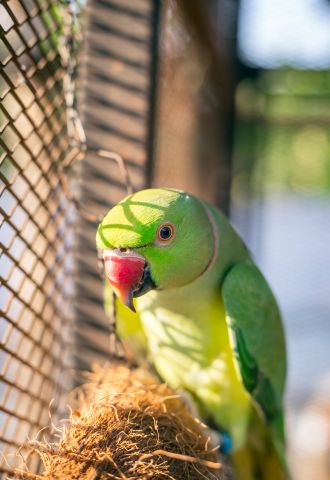
Can Indian Ringneck Parakeets learn to talk?
Indian Ringneck Parakeets are known for their ability to mimic human speech and sounds. However, not all birds will learn to talk, and it requires patience and consistent training to teach them.
What are some common health issues for Indian Ringneck Parakeets?
Common health issues for Indian Ringneck Parakeets include respiratory infections, feather plucking, and digestive problems. Regular veterinary check-ups and a balanced diet can help prevent these issues.
Conclusion
Indian Ringneck Parakeets can make great pets for the right owner. They are highly intelligent, social, and can be excellent talkers. However, owning an Indian Ringneck Parakeet is a long-term commitment as they require a lot of attention and can be loud and noisy. They can also be aggressive if not properly socialized, so it’s important to train and bond with them. It’s essential to consider whether you can provide the necessary care for their entire lifespan.
Indian Ringneck Parakeets are gentle pets that love attention and spending time with their owners. They are very curious and love to play, making them easy to entertain. They are affectionate and easy to take care of, as they are not picky about what they eat.
Overall, Indian Ringneck Parakeets are a great choice for experienced pet owners who have the time and dedication to provide them with the care and attention they need. They are beautiful birds that can bring joy and companionship to their owners for many years to come.

